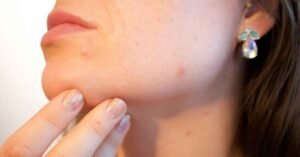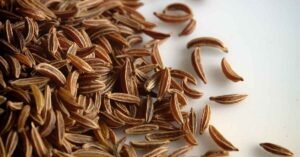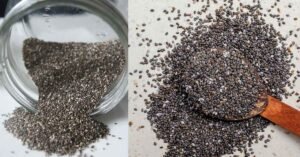
Hip pain menopause is a common issue. Many women going through menopause report joint discomfort, particularly in the hips. This pain is often a result of hormonal changes, lifestyle factors, or underlying conditions that become more pronounced as estrogen levels decline.
In this article, we will explore the main causes of hip pain during menopause, the symptoms to look out for, and the best treatments available to help ease the discomfort. Whether you’re experiencing hip pain or know someone who is, this guide will help you understand the issue and find suitable solutions.
What Causes Hip Pain During Menopause?
This problem can be caused by several factors. The key culprit is the change in hormone levels, particularly estrogen. Estrogen plays a crucial role in maintaining the health of your joints, bones, and muscles. As estrogen levels drop, it can lead to joint pain, stiffness, and a decrease in bone density. Below are some of the primary causes of hip pain in menopause:
1. Hormonal Changes and Estrogen Deficiency
Estrogen levels decline during menopause. This hormone helps protect the joints by maintaining the lubrication and elasticity of connective tissues. When estrogen decreases, these tissues weaken, causing pain and stiffness in the joints, particularly the hips. This is one of the primary reasons many women experience joint pain during menopause.
2. Osteoarthritis
Osteoarthritis is a degenerative joint disease that affects the cartilage in the joints. It’s especially common in older women, and its symptoms are often aggravated during menopause. The loss of estrogen accelerates the breakdown of cartilage, causing bones to rub against each other, leading to pain and inflammation in the hips.
3. Osteoporosis
Osteoporosis is a condition that causes bones to become weak and brittle. Estrogen plays a crucial role in maintaining bone density. As estrogen levels drop during menopause, bone loss increases. This makes the bones more susceptible to fractures, including hip fractures. Although osteoporosis doesn’t directly cause pain, it can contribute to hip pain when fractures or stress on the bones occur.
4. Weight Gain and Its Impact
Many women experience weight gain during menopause. This is partly due to hormonal changes and changes in metabolism. Excess weight puts more pressure on the joints, including the hips. This additional pressure can worsen hip pain, particularly for those with conditions like osteoarthritis or osteoporosis.
5. Inflammation and Autoimmune Conditions
Inflammation increases during menopause, contributing to pain in the joints. Autoimmune conditions, such as rheumatoid arthritis, also tend to worsen during menopause, causing further discomfort. These conditions can cause chronic inflammation in the hip joints, leading to pain and stiffness.
Symptoms of Hip Pain During Menopause

Hip pain symptoms can vary from person to person. While the pain is usually related to hormonal changes, other symptoms may indicate underlying conditions. Common symptoms of hip pain during menopause include:
- Pain in the Hip Joint: Pain may be located directly in the hip joint, especially after prolonged sitting or standing.
- Stiffness: You may feel stiffness in the hip, especially after waking up in the morning or sitting for long periods.
- Pain Radiating to Thigh or Lower Back: The pain can sometimes radiate to other areas such as the thigh, lower back, or groin.
- Swelling and Tenderness: The hip joint may feel swollen, and pressure on the area might cause discomfort.
- Limited Range of Motion: The pain may restrict the hip’s range of motion, making it difficult to fully extend or rotate the leg.
It’s important to pay attention to these symptoms. If they persist or worsen, it’s advisable to see a doctor for a thorough evaluation and diagnosis.
Best Treatments for Hip Pain During Menopause
Fortunately, there are several treatments available for managing hip pain during menopause. The right treatment depends on the underlying cause and severity of the pain. Below are some of the most effective treatment options:
1. Hormone Replacement Therapy (HRT)
Hormone Replacement Therapy (HRT) is one of the most effective treatments for managing menopause symptoms, including hip pain. HRT helps to restore estrogen levels in the body. This can reduce joint pain and inflammation and help protect bone density. For women suffering from hip pain due to estrogen deficiency, HRT can provide significant relief. However, HRT isn’t suitable for everyone, especially those with a history of breast cancer or blood clots. It’s important to consult with a doctor to determine if HRT is right for you.
2. Pain Relief Medications

Over-the-counter pain medications can be used to manage hip pain. Nonsteroidal anti-inflammatory drugs (NSAIDs), like ibuprofen, can reduce inflammation and relieve pain. Acetaminophen (Tylenol) is another option for pain relief. In more severe cases, a doctor may prescribe stronger pain medications or corticosteroid injections to reduce inflammation and provide longer-lasting relief.
3. Physical Therapy
Physical therapy is a non-invasive treatment option that can be very helpful for managing hip pain during menopause. A physical therapist can design a customized exercise program to strengthen the muscles around the hip joint. Strengthening these muscles can reduce the strain on the hip joint and improve mobility. Physical therapy can also help with flexibility and pain management. Some patients also benefit from manual therapy, where the therapist uses their hands to manipulate the joints.
4. Exercise

Exercise is essential for maintaining healthy joints and bones. For women experiencing hip pain during menopause, low-impact exercises can help strengthen the muscles around the hips and improve mobility without putting too much stress on the joints. Activities like swimming, walking, and cycling are excellent choices. Strength training exercises are also important to help maintain bone density and prevent osteoporosis.
5. Weight Management
Maintaining a healthy weight is important for reducing the strain on the hip joints. Excess body weight places additional pressure on the joints, which can worsen hip pain. A healthy diet, combined with regular physical activity, can help with weight management and improve overall joint health. In some cases, losing weight can significantly reduce hip pain and improve mobility.
6. Alternative Treatments
Some women find relief from alternative treatments like acupuncture or massage therapy. These treatments can help reduce muscle tension, improve circulation, and decrease pain. Herbal supplements, such as glucosamine and turmeric, have anti-inflammatory properties that may help reduce joint pain. However, it’s important to consult with a doctor before trying any new treatments, especially if you’re on medication.
7. Diet and Nutrition

A balanced diet plays an important role in managing hip pain. Certain nutrients are particularly beneficial for joint and bone health. Calcium and vitamin D are essential for maintaining strong bones. Foods rich in these nutrients include dairy products, leafy greens, and fatty fish like salmon. Anti-inflammatory foods like berries, nuts, and olive oil can also help reduce joint pain and inflammation. If you’re not getting enough calcium or vitamin D from your diet, supplements may be necessary.
Treatments for Hip Pain During Menopause
| Treatment | Benefits | Considerations |
| Hormone Replacement Therapy (HRT) | Restores estrogen, reduces joint pain and inflammation | Not suitable for everyone, consult a doctor |
| Pain Relief Medications | Relieves pain and inflammation | Can have side effects, use as directed |
| Physical Therapy | Strengthens muscles, increases flexibility | Requires regular sessions and expert guidance |
| Exercise | Improves mobility, strengthens muscles | Low-impact exercises are best to avoid strain |
| Weight Management | Reduces pressure on joints, prevents further damage | Requires lifestyle changes, commitment to diet and exercise |
| Alternative Treatments | Reduces inflammation, improves circulation | Consult a professional before trying new treatments |
| Diet and Nutrition | Supports bone health, prevents osteoporosis | Focus on calcium and vitamin D-rich foods |
FAQs :
1. Can menopause cause hip pain?
Yes, hormonal changes during menopause can lead to hip pain. The drop in estrogen levels weakens the joints and increases inflammation, making hip pain more common.
2. How can I treat hip pain during menopause?
Effective treatments include hormone therapy, pain relievers, physical therapy, exercise, weight management, and alternative therapies like acupuncture.
3. What is osteoarthritis and how is it related to menopause?
Osteoarthritis is a condition where the cartilage in the joints deteriorates. Estrogen loss during menopause accelerates the breakdown of cartilage, increasing the risk of osteoarthritis and hip pain.
4. Does weight gain during menopause make hip pain worse?
Yes, extra weight puts additional pressure on the hips, which can worsen hip pain, especially in women with osteoarthritis or osteoporosis.
5. Are there natural remedies for hip pain during menopause?
Yes, natural remedies such as acupuncture, massage therapy, and herbal supplements like turmeric and glucosamine may help reduce inflammation and ease pain.
6. Does exercise help with hip pain during menopause?
Yes, regular exercise strengthens the muscles around the hip joint, reduces stiffness, and improves mobility. Low-impact exercises like swimming, walking, and cycling are ideal.
7. How does diet affect hip pain during menopause?
A diet rich in calcium, vitamin D, and anti-inflammatory foods can help support bone health and reduce joint pain. Supplements may be necessary if you’re not getting enough from your diet.
Conclusion
Hip pain during menopause is common, but it doesn’t have to control your life. By understanding the causes, symptoms, and treatments, you can take steps to manage the pain effectively. Whether through hormone therapy, physical therapy, or simple lifestyle changes like diet and exercise, there are many ways to reduce hip pain and improve your quality of life. Always consult with a doctor before starting any new treatment plan to ensure it’s right for you.














